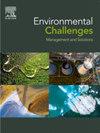通过综合气象和行为因素预测日本与热有关的发病率
Q2 Environmental Science
引用次数: 0
摘要
由于全球气候变化加剧了极端高温事件的频率增加,与热有关的疾病已成为一个严重的公共卫生问题。准确预测这些疾病对于管理公共卫生风险至关重要。现有的预测模型往往仅仅依赖于气象因素,限制了它们的有效性。这项研究旨在通过整合气象变量(环境温度、湿度和太阳辐射)和行为因素(假日和雨天)来改进热相关疾病的预测模型,这些因素会影响一个人暴露在极端高温下的情况。分析了日本所有47个县2014年至2019年和2023年的数据。我们的改进模型考虑了热适应和行为模式的区域差异,并使用留一交叉验证方法进行了验证。该方法的精度体现在室外情况下的平均绝对误差为1.30,室内情况下的平均绝对误差为0.95,与之前仅考虑温度的模型相比,分别提高了11.79%和3.72%。该模型作为一个基于网络的平台实施,用于实时风险评估,并帮助应急服务和地方政府在热浪期间有效管理医疗资源。这些发现强调了改进的预测模型在减轻全球变暖对公共卫生的影响方面的关键作用。提出的模型具有可扩展性,可适用于面临极端高温负面影响的其他地区,最终加强公共卫生准备和预防措施。本文章由计算机程序翻译,如有差异,请以英文原文为准。

Predicting heat-related morbidity in Japan through integrated meteorological and behavioral factors
Heat-related illness has become a critical public health concern due to the increasing frequency of extreme heat events, intensified by global climate change. Accurate prediction of these illness is crucial to managing public health risks. Existing prediction models often rely solely on meteorological factors, limiting their effectiveness. This study aimed to improve prediction models for heat-related illness by integrating meteorological variables (ambient temperature, humidity, and solar radiation) and behavioral factors (holiday periods and rainy days) that influence a person's exposure to extreme heat. Data from all 47 prefectures in Japan were analyzed from 2014 to 2019 and in 2023. Our refined model accounted for regional variations in heat acclimatization and behavioral patterns, and was validated using the leave-one-out cross-validation method. The accuracy of the proposed approach was reflected by mean absolute error of 1.30 for outdoor cases and 0.95 for indoor cases, representing improvements of 11.79 % and 3.72 %, respectively, compared to the previous models that considered solely on temperature. The model was implemented as a web-based platform for real-time risk assessments and to help emergency services and local governments manage medical resources effectively during heatwaves. These findings underscore the critical role of improved predictive models in mitigating the public health impact of global warming. The proposed model is scalable and can be adapted to other regions facing the negative effects of extreme heat, ultimately enhancing public health preparedness and preventive measures.
求助全文
通过发布文献求助,成功后即可免费获取论文全文。
去求助
来源期刊

Environmental Challenges
Environmental Science-Environmental Engineering
CiteScore
8.00
自引率
0.00%
发文量
249
审稿时长
8 weeks
 求助内容:
求助内容: 应助结果提醒方式:
应助结果提醒方式:


